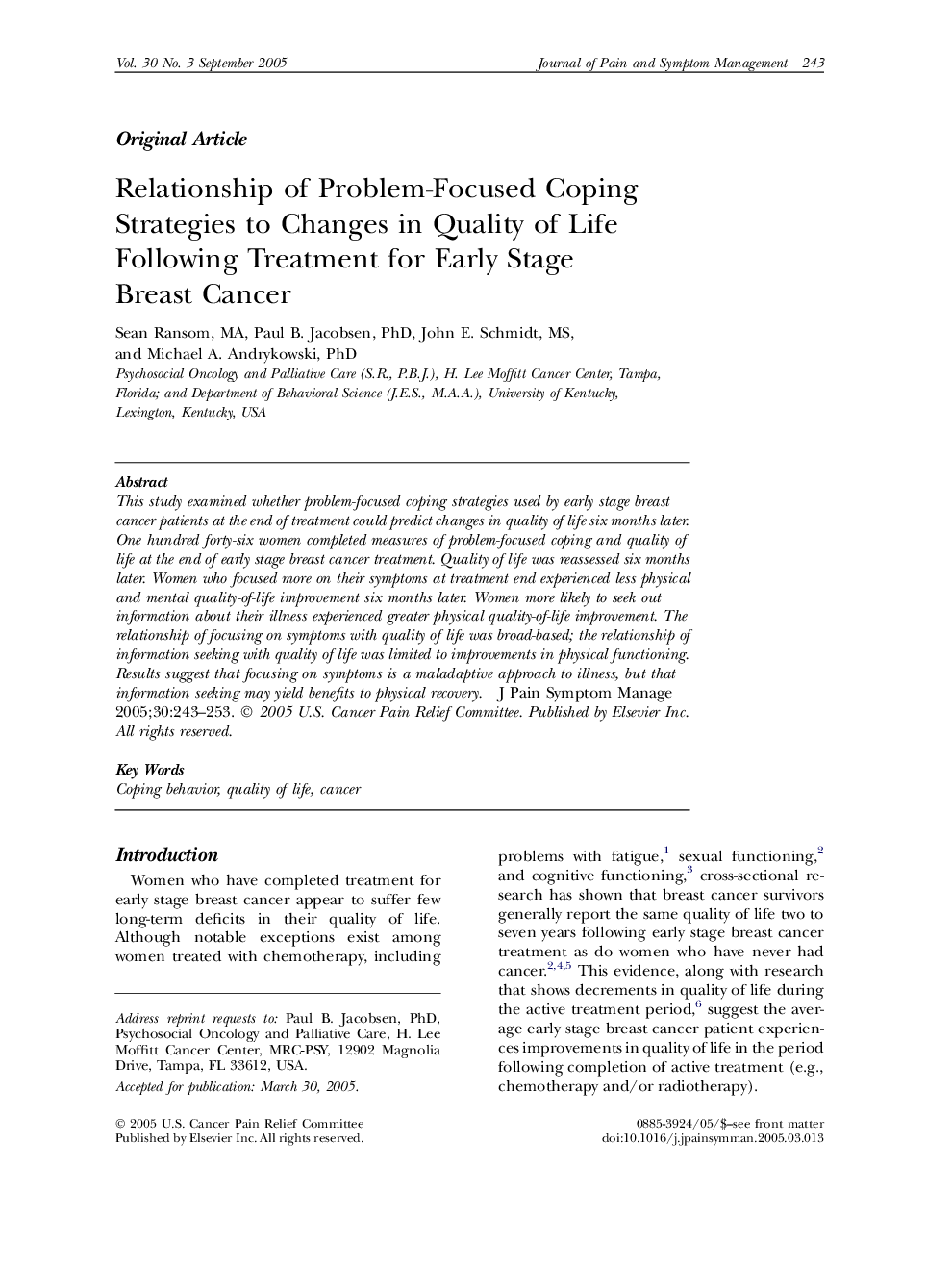| Article ID | Journal | Published Year | Pages | File Type |
|---|---|---|---|---|
| 9086751 | Journal of Pain and Symptom Management | 2005 | 11 Pages |
Abstract
This study examined whether problem-focused coping strategies used by early stage breast cancer patients at the end of treatment could predict changes in quality of life six months later. One hundred forty-six women completed measures of problem-focused coping and quality of life at the end of early stage breast cancer treatment. Quality of life was reassessed six months later. Women who focused more on their symptoms at treatment end experienced less physical and mental quality-of-life improvement six months later. Women more likely to seek out information about their illness experienced greater physical quality-of-life improvement. The relationship of focusing on symptoms with quality of life was broad-based; the relationship of information seeking with quality of life was limited to improvements in physical functioning. Results suggest that focusing on symptoms is a maladaptive approach to illness, but that information seeking may yield benefits to physical recovery.
Keywords
Related Topics
Life Sciences
Neuroscience
Neurology
Authors
Sean MA, Paul B. PhD, John E. MS, Michael A. PhD,
